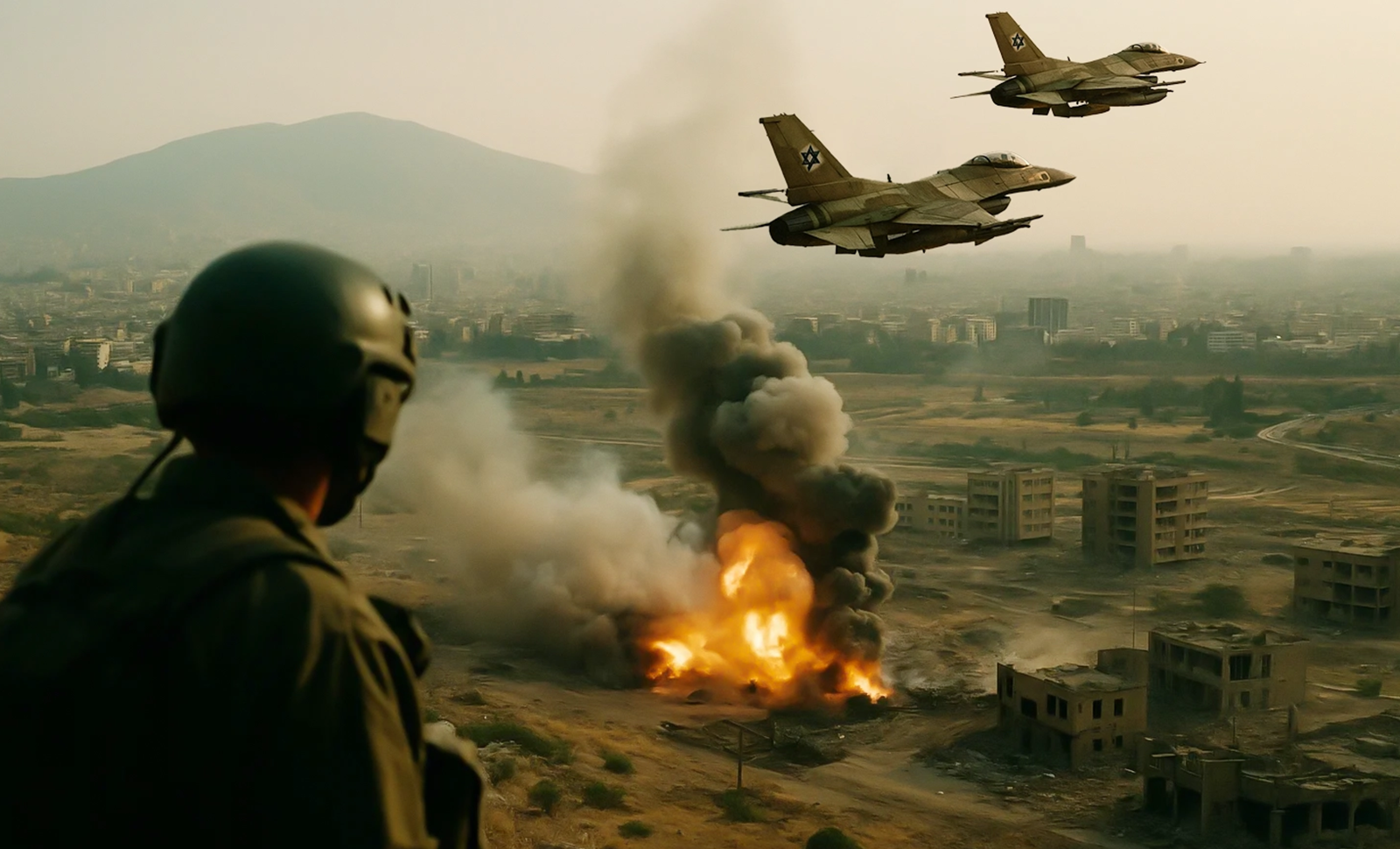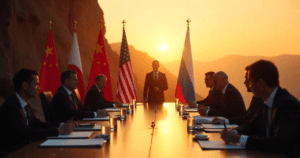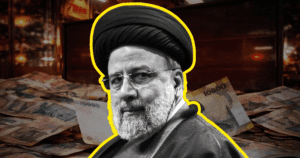The Washington Eye
In a significant escalation of regional instability, Israel launched a series of airstrikes on multiple locations in Syria on Tuesday, July 16, 2025. The attacks targeted military sites near the capital Damascus and southern areas such as Sweida and Daraa. According to Syrian state media and local sources, explosions were heard across the capital shortly after 3:00 PM local time, with visible plumes of smoke rising from key installations. The Syrian military confirmed that several of its personnel were killed and injured, while infrastructure damage was reported at various military facilities, including intelligence offices and storage depots.
The Israeli Defense Forces (IDF) justified the strikes by claiming they were aimed at preventing Iran-backed militias from expanding their control in southern Syria and protecting the local Druze population in Sweida, which has recently faced increased violence from Syrian regime forces. Israeli Defense Minister Yoav Gallant stated that the action was a necessary measure to prevent “ethnic cleansing” in the region and to “protect Israel’s borders from chaos and terror.” The strikes also came in response to growing unrest along Israel’s northern border, with reports suggesting that some Israeli Druze citizens were preparing to cross into Syria to aid their communities under threat.
The Syrian interim government, led by President Ahmad al-Sharaa, condemned the strikes as “blatant aggression” and accused Israel of exploiting humanitarian concerns for geopolitical motives. In a televised address, al-Sharaa described the attacks as a violation of Syrian sovereignty and international law. Iranian and Hezbollah-linked groups operating in Syria also vowed retaliation, raising fears of further escalation.
The international reaction has been swift. The United Nations Security Council announced an emergency session to discuss the developments, while the U.S. urged all parties to exercise restraint. “We support Israel’s right to self-defense,” said a U.S. State Department spokesperson, “but we also call for de-escalation and the protection of civilians.” Meanwhile, regional powers like Turkey and Iran condemned the Israeli operation. Ankara warned that continued military strikes could destabilize ongoing diplomatic efforts aimed at post-war reconstruction in Syria.
Civilians, especially in southern Syria, have been hit hard by the crisis. Humanitarian organizations reported a surge in panic, with many families attempting to flee conflict zones, though limited access to fuel and roadblocks hampered movement. The Syrian Red Crescent expressed deep concern, citing communication blackouts and worsening conditions for delivering aid. Sweida, in particular, has seen increasing tension in recent weeks, with local Druze militias clashing with Syrian regime forces. Activists say the region is now facing a humanitarian emergency.
While Israel has conducted numerous strikes in Syria over the past decade targeting Iranian weapons shipments and Hezbollah positions, this latest offensive marks one of the most politically charged interventions. The open acknowledgment of defending Druze communities, a move applauded by Israel’s own Druze minority has introduced a new layer of complexity into an already volatile conflict. The Israeli public remains divided on the government’s action, with opposition leaders warning of a possible retaliation campaign by Hezbollah or Iranian proxies.
As the world watches closely, the potential for wider conflict looms large. With each actor pursuing its own strategic goals Israel seeking to secure its borders, Syria attempting to reassert control, Iran expanding its regional influence, and global powers balancing alliances, the Middle East finds itself once again on the edge of a broader military and humanitarian crisis.















